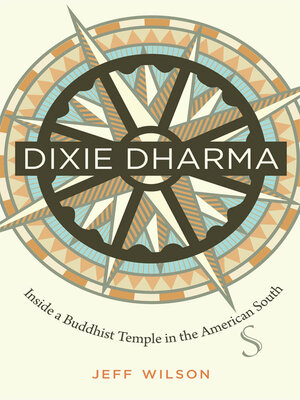
Sign up to save your library
With an OverDrive account, you can save your favorite libraries for at-a-glance information about availability. Find out more about OverDrive accounts.
Find this title in Libby, the library reading app by OverDrive.



Search for a digital library with this title
Title found at these libraries:
| Library Name | Distance |
|---|---|
| Loading... |
Buddhism in the United States is often viewed in connection with practitioners in the Northeast and on the West Coast, but in fact, it has been spreading and evolving throughout the United States since the mid-nineteenth century. In Dixie Dharma, Jeff Wilson argues that region is crucial to understanding American Buddhism. Through the lens of a multidenominational Buddhist temple in Richmond, Virginia, Wilson explores how Buddhists are adapting to life in the conservative evangelical Christian culture of the South, and how traditional Southerners are adjusting to these newer members on the religious landscape.
Introducing a host of overlooked characters, including Buddhist circuit riders, modernist Pure Land priests, and pluralistic Buddhists, Wilson shows how regional specificity manifests itself through such practices as meditation vigils to heal the wounds of the slave trade. He argues that southern Buddhists at once use bodily practices, iconography, and meditation tools to enact distinct sectarian identities even as they enjoy a creative hybridity.
Introducing a host of overlooked characters, including Buddhist circuit riders, modernist Pure Land priests, and pluralistic Buddhists, Wilson shows how regional specificity manifests itself through such practices as meditation vigils to heal the wounds of the slave trade. He argues that southern Buddhists at once use bodily practices, iconography, and meditation tools to enact distinct sectarian identities even as they enjoy a creative hybridity.







